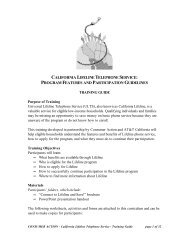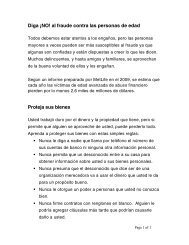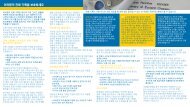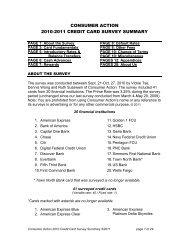Talking to Teens about Money - Seminar Lesson ... - Consumer Action
Talking to Teens about Money - Seminar Lesson ... - Consumer Action
Talking to Teens about Money - Seminar Lesson ... - Consumer Action
Create successful ePaper yourself
Turn your PDF publications into a flip-book with our unique Google optimized e-Paper software.
A <strong>Money</strong>Wi$e TrainingNeeds/Wants Exercise:Ask participants <strong>to</strong> take out the activity sheet from their folders. Stress that thisis not a test, but a learning activity.Instructions:As shown in the “fast food lunch” example on the worksheet• write your opinion on whether the items listed are needs or wants;• give a short reason why you feel that way;• assign a price <strong>to</strong> the item, and• suggest an alternative.Allow participants <strong>about</strong> 10 minutes for the activity. Then ask for everyone’sattention. Go over each item with the class, asking for volunteers <strong>to</strong> give differentanswers <strong>to</strong> the questions. Validate participants’ ideas with positive statementssuch as, “That’s a great point!” Encourage participants <strong>to</strong> speak by saying, “Doesanyone have any other ideas?”Question <strong>to</strong> generate discussion:• Do you think teenagers know the difference between needs and wants?The Working Life(10 mins.)(See “<strong>Talking</strong> <strong>to</strong> <strong>Teens</strong> About <strong>Money</strong>” booklet, page 2.)Suggested remarks:• Having a job helps kids prepare for adult life.• Work habits formed as a teenager follow you for the rest of your life.• Teaching financial responsibility can be difficult if kids don’t know what it’slike <strong>to</strong> earn their own money.Key points <strong>about</strong> teen jobs:• <strong>Teens</strong> 16 and older generally can work full time, although some states maylimit the times of day they can work.• <strong>Teens</strong> aged 14 and 15 can work 18 hours a week but no more than three hourson school days. In the summer, they can work eight hours a day, 40 hours aweek.• Younger teens can do odd jobs such as running errands, babysitting, dogwalking or lawn mowing.Questions <strong>to</strong> generate discussion:• What skills did you gain from your first job?—People skills—Office or computer skills“<strong>Talking</strong> <strong>to</strong> <strong>Teens</strong> About <strong>Money</strong>” — <strong>Money</strong>Wi$e <strong>Lesson</strong> Plan Page 6 of 27


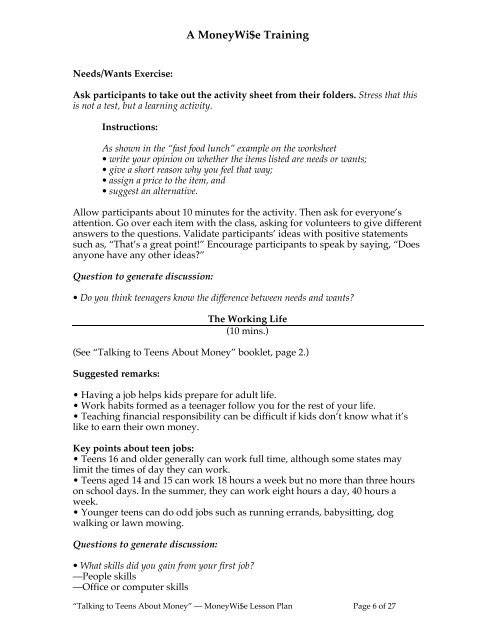


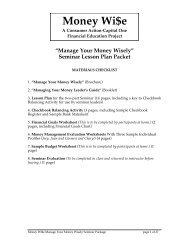
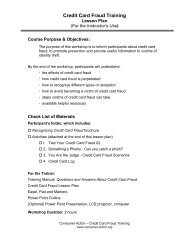
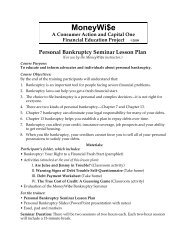
![Debt Collection Issue [Winter 2007-2008] - Consumer Action](https://img.yumpu.com/43405069/1/169x260/debt-collection-issue-winter-2007-2008-consumer-action.jpg?quality=85)


